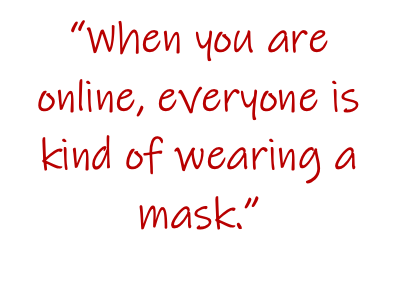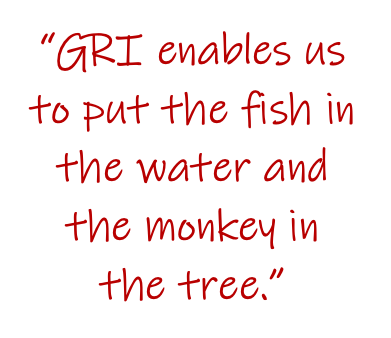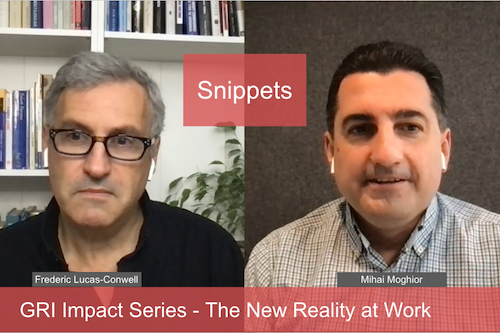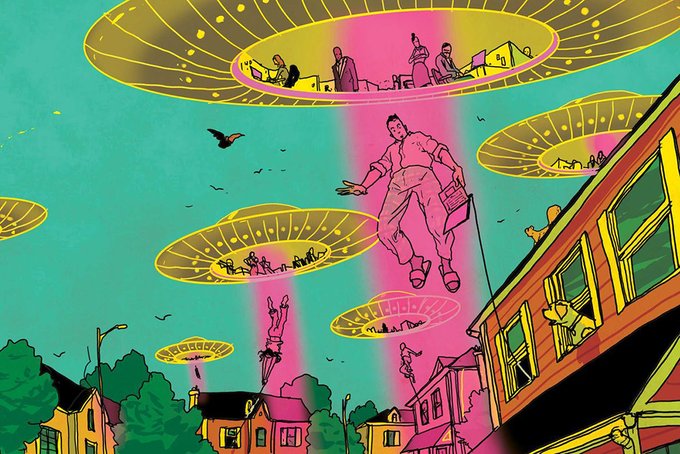The New Reality at Work: The Missing Link
Posted by Mihai Moghior

The New Reality at Work: The Missing Link
Over the last two years everyone who could do their work from home was asked to, and it has dramatically changed the work environment. We are efficient and capable, effective and productive even when working remotely. But even though this new reality "works", there is something missing.
As Mihai Moghior, GRI Managing Partner for Romania says, "I think we are able to coach, to assist, to support and to engage in assignments with our clients at least 90% in terms of efficiency compared to the way we did before when we were having in-person interaction."
The Missing 10 Percent
The 10 percent, the missing link, is the emotional element, empathy, and trust.
There are intangibles when a workgroup or team meets in person, that are hard to measure, but are important to building empathy, trust, and ultimately, culture. When a group is in the same room, everyone engages all of their senses and they are immersed in the interaction. As Mihai says, "We relate to each other, and it's a more fluent and natural many-to-many relationship. With remote teams, it's more one-to-many."
With remote work, people are not interacting between the meetings. They are not running into each other at the coffee maker and having an impromptu conversation about the topics from the recent meeting, asking each other questions, clarifying, expressing doubts or fears. They are not seeing each other at the water cooler and talking about the latest football scores.

Right now, interaction is more focused and task-oriented. Online, you only see what your teammates want you to see - when there is something they don't want to show, they switch off the camera. That's not possible when you are in the room together. In-person, you can get the nuances. You can see the body language, read facial expressions, and intuit the things that are going unsaid. "When you are in the room, you are there with the good and the bad, all of it. When you are online, everyone is kind of wearing a mask. The missing link of empathy and trust may go up to 50%."
Mihai notes that things have shifted and changed from early on in the pandemic to the current state. He points out that when the pandemic started and workers had to shift to working from home, they were, generally speaking, in teams that were intact, with teammates that knew each other and had already had time in-person to build trust and create team norms. This gave them an advantage, and many of the dynamics of the team translated fairly easily to the remote setting.
As time has gone on, and the pandemic has forced companies to keep their teams remote, the makeup of many teams has changed. People left, new people were hired. This changes the remote dynamic and highlights those interpersonal challenges that come when you have no in-person interaction. "New people, when they are entirely remote and have never met their team in person, can really feel like the newcomer. They can get the scope of work, what they need to do, what their resources are, and what they need to deliver. But they don't really get the company culture. And my definition of the culture here is 'the way things are going around here at the moment." When your physical environment doesn't change, when you work for one company today and another company tomorrow, all from your own living room, that removes another cue for the company culture.
Mihai says, "It all becomes less personal, less human. You have interactions between job titles rather than people. The project manager in discussion with the developer more than John talking with Sarah. The entire focus ends up being on deadlines and KPIs."
GRI Bridges the Gap in Remote Work
We like to say that the GRI confirms some of your intuitions about people and challenges others. Intuition about people can be valuable, but in this new reality intuition is even further handicapped by the nature of remote work. It is hard to use your intuition when there isn't much emotion and energy transmitted in video meetings. GRI not only gives you better, more accurate information about your people, it also gives you a reason to connect one-to-one in feedback sessions. "GRI nicely fills this intuition and interaction gap because it generates a platform for smart conversations and for giving feedback person-to-person. It supports and encourages human-to-human interaction," says Mihai.
This can help managers to counteract much of the disengagement that is happening with their people, and help executives lead more effectively.
Mihai offers an example: "When you are physically in the office it's easy to see that an employee in the outside sales department is struggling with making his cold calls. He is, apparently, afraid to pick up the phone, afraid to start, afraid of the rejection that is 80-90 percent of cold calling. And when you are there in person, you can find a good time and just ask, 'Hey, Tom, what's happening with you? I noticed that you are struggling a bit. Do you have something in your heart? Are you afraid/worried/concerned about something? How can I help?' By being there physically you can recognize the problem and intervene. When you are remote, you don't see what happens between the meetings, so if you aren't seeing the results you want, you have no sense of why. And at this point, you find that people start to make up excuses about why they aren't meeting their quota or hitting their deadline."
Taking Tom, from Mihai's example, if you know from the start what Tom's preferences are, you can put him where he will be most effective, more productive, and happier, rather than having him fail and suffer in the wrong position. GRI gives you that data so you can make the decision upfront rather than waiting until there is a problem.
GRI Puts the Monkeys in the Trees
"One of our clients put it this way: 'GRI enables us to put the fish in the water and the monkey in the tree.' Because most probably in your organization, you have both monkeys and fishes, but not all of them are in their natural environment."
The GRI makes it easy to recognize these styles and preferred ways of working during the recruiting stage. While you can train people to skills, methods, and processes, you can't really change their behavioral preferences. It is far better to put them in the kind of role they are more suited to by their behavior and personality and teach them how to do the functional parts than to put them in a role that forces them to adapt beyond where they are comfortable.
And the GRI is the ideal tool for more successful remote recruiting, remote onboarding, and, of course, the interpersonal challenges of remote work in general. The GRI is designed for giving feedback, for facilitating one-on-one conversations, for discussing, deciding, and acting. Mihai has seen, again and again, this sort of magical result when people receive the GRI feedback. "So many people were just amazed, and felt like this was the first time somebody saw them and understood them."

It is also a way to create a safe space for people to be open with each other, to discuss intangibles and subjects that are more delicate or need to be addressed with some diplomacy. It opens the floor to discuss things before they become issues, so that you are not heated or angry, but can speak calmly and rationally. People can ask questions and get clarity, and they are more willing to commit to each other and to their team goals. Plus, they learn what they should ask from each other, and how to respond to each person individually.
GRI seminars, coaching, and feedback sessions are well suited to this new reality of work and are a great way to understand your team and increase the empathy and trust that are the missing link in remote work.
Still, as Mihai says, there is a need for teams to come together in person at least a few times a year. "The emotion, the energy that is present when a team comes together physically is so valuable. Along with the data from the GRI, it really boosts their ability to work remotely for the majority of the year."
Mihai Moghior has been master coaching and training clients and other coaches with the GRI for over seven years. Based in Romania, he is looking forward to a time when he and his family can travel again, experiencing the sights, sounds, smells, and tastes of different cultures. They are planning a big "friend reunion" in Mozambique this summer.

Listen to the full interview on Youtube here.
Start with the snippets here.
Latest Articles
Leadership 3.0: Objective Insights for People-Centric Leaders
Steve, a brilliant entrepreneur, poured his heart into his work. His team at "Innovatech" was on the brink of a major breakthrough, a new app that promised to revolutionize...
Transforming Boards: Unleashing the Power of Quiet Diversity
Two years ago, a private company's board witnessed a historic shift, appointing a black woman as Chairperson—a groundbreaking move for diversity. However, despite the outward...
A Growth Culture: Enhanced with Behavior Analytics
People are often amazed by how much we can learn from a behavior distribution map such as the one below. You may have guessed that the little dots represent people. The two...



